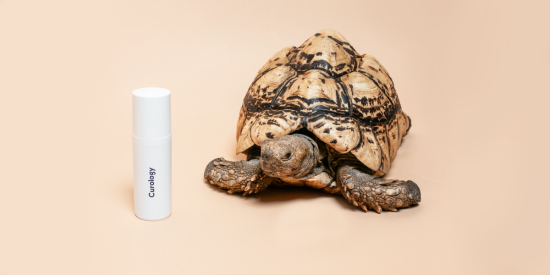The Topical
We’re here to tell you what we know, but don’t take it as medical advice. Talk to your medical provider about your specific health concerns.

Stock up on your skincare essentials at The Curology Shop—no subscription needed
It’s just one of the ways we make it easy to get the products that work for your unique skin.
Latest from Curology

Ask the experts: How to treat milia
Let’s get to the bottom of what causes those little bumps—and what you can do about them.

What to eat and avoid in an eczema diet, according to experts
Some of the best foods to eat—and avoid—to help calm this chronic skin condition.

5 tips to heal dry, scaly skin
Remedies for scaly skin on your feet to dry skin on your face.

Expert-approved tips to help you control oily skin
Curology’s dermatology providers share their advice for taking care of acne-prone skin

How to survive the holidays without breaking out
Help keep your skin clear through the end of the year with these tips.

Acne around mouth: how to treat and prevent it
Kiss acne around your lips goodbye with these expert-backed treatment and prevention tips.

Natural skincare: fact vs. fiction
The truth about organic, clean, natural beauty

Bakuchiol serum: facts vs. fiction
Does this natural retinol alternative really work?

What to expect with tranexamic acid
Is this ingredient right for your hyperpigmentation cream?

Here’s how turmeric may help improve your skin
Learn the potential benefits and risks that this root may have on your skin, including its wound-healing and anti-aging properties.

How to use rosehip oil in skincare
Does this facial oil help acne? Here are the facts.

Ask Curology: how do I get rid of acne scars?
Boxcar, ice pick, and rolling scars — can they be healed?